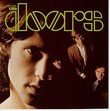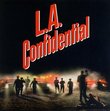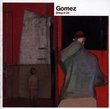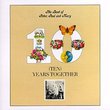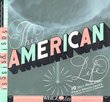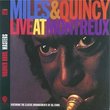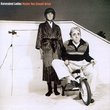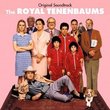| All Artists: Various Artists Title: Welsh Rare Beat Members Wishing: 3 Total Copies: 0 Label: Finders Keepers UK Original Release Date: 1/1/2005 Re-Release Date: 8/22/2005 Album Type: Import Genres: International Music, Pop, Rock, Classic Rock Styles: Europe, Britain & Ireland, Progressive, Progressive Rock, Psychedelic Rock Number of Discs: 1 SwapaCD Credits: 1 UPCs: 5060099500046, 5060099500336 |
Search - Various Artists :: Welsh Rare Beat
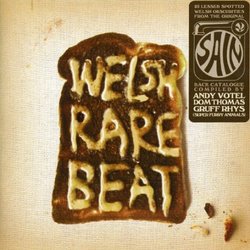 | Various Artists Welsh Rare Beat Genres: International Music, Pop, Rock, Classic Rock
Having delved into the murky history of folk music to produce the excellent Folk Is Not A Four Letter Word compilation, Andy Votel here does the same for Welsh-language music originally released on the pioneering Sain labe... more » |
Larger Image |
CD DetailsSynopsis
Album Description Having delved into the murky history of folk music to produce the excellent Folk Is Not A Four Letter Word compilation, Andy Votel here does the same for Welsh-language music originally released on the pioneering Sain label in the 1970s, with assistance from Dom Thomas and Super Furry Animals' Gruff Rhys. Most of Welsh Rare Beat's 25 songs seem to be about druids, ancient kings or characters from the Mabinogi myths, performed by a motley assortment radical folksters, musical virtuosos and visionaries - although much of that detail would be lost on non-Welsh speakers, were it not for some lovingly annotated liner notes featuring anecdotes from the scene plus a historical overview of Welsh pop by Rhys. Particular highlights comes from Y Tebot Piws' surreal beats on 'Mae Rhywyn Wedi Dwyn Fy Nhrwyn', and Heather Jones' 'Penhryn Gwyn'. Welsh Rare Beat is also notable for the inclusion of the Hendrix-inspired 'Hen Wlad Fy Nhadau', performed by acclaimed guitarist Tich Gwilym who sadly died in a house fire in Cardiff in June. Finders Keepers. 2005. Similar CDs
Similarly Requested CDs
|
CD ReviewsBest of early Sain: Welsh-language indie pioneer label John L Murphy | Los Angeles | 02/09/2006 (4 out of 5 stars) "This enjoyably eclectic and eccentric compilation of artists on the late 60s-70s indie Sain ("Sound") Welsh-language label makes a strong statement for the cultural nationalism that that era's agitation fomented. It reminds me of the Hungarian music from the same decades, when artists inspired by English-language rock and pop and folk decided to make their own assertive messages in the same idiom, but colored by their own traditions and in their native languages. Track 2 here, for example, sounds to me exactly like the Irish band Horslips, who similarly energized folk music for younger listeners with an infusion of harder rock. Compared to the British "acid folk" artists concurrent, the Welsh musicians tend to feature a grittier, tenser, and denser sound, even on the female-dominated vocal tracks here.
As the excellent liner notes by Gruff Rhys (SFA) explain, this meant no male choirs or winsome lasses with harps--although Heather Jones' couple of eloquent cuts do show this influence, if tastefully! He calls this music a blend of psych, blues, rock, pop, and proto-punk. The last of these genres can be best sampled from tracks 20 + 23, which sound as if the Super Furry Animals could've played them for the first time last week. Track 19 shows the more experimental side of the music; the latter half of the album tends to find the music opening up and stretching out into more innovative takes on then-current sounds. By comparison, the first half sounds more of its time, and the tracks often start out very strongly, but, as if constrained by the 3-minute-pop song rule, tend to suddenly fade out just when you wish they'd start to expand and take the song another couple of minutes! Certainly this feeling's rare for a listener to most such compilations of previously unheard music. I can see why Rhys favors best the Meic Stephens track 10--it's a clever and lively tune that shows why that artist's considered a peer of Dylan--Bob more than Thomas, perhaps. The packaging deserves special mention. There's even a map of Wales which imitates the cut-and-paste graphics and period typography in showing the relevance of such movements as the Welsh Language Society and the Abergawn martyrs and the social unrest that led to the political as well as cultural demands for recognition of Cymric nationhood and autonomy--reminders that music does not always have to be explicitly topical to cause change in the wider society. The effect as a whole is not so much sounds you've never before heard, but the artists and label's right to simply convey the music they wanted to play in the language they wanted to sing." |

 Track Listings (25) - Disc #1
Track Listings (25) - Disc #1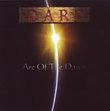
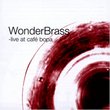
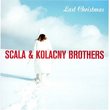
![Born On A Pirate Ship [ENHANCED CD]](https://nationalbookswap.com/cd//m/01/2901/232901.jpg)
